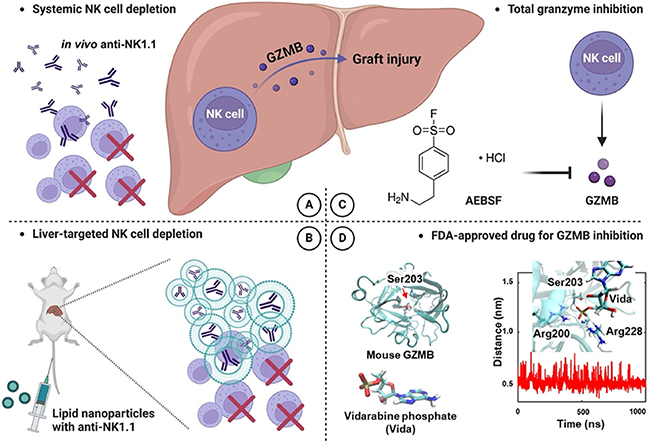Liver transplantation (LT) has become a standard treatment for end-stage liver diseases, and graft injury is intricately associated with poor prognosis. Granzyme B (GZMB) plays a vital role in natural killer (NK) cell biology, but whether NK-derived GZMB affects graft injury remains elusive. Through the analysis of single-cell RNA-sequencing data obtained from human LT grafts and the isolation of lymphocytes from mouse livers following ischemia-reperfusion injury (IRI), we demonstrated that 2NK cells with high expression of GZMB are enriched in patients and mice. Both systemically and liver-targeted depletion of NK cells led to a notable reduction in GZMB+ cell infiltration, subsequently resulting in diminished graft injury. Notably, the reconstitution of Il2rg−/−Rag2−/− mice with purified Gzmb-KO NK cells demonstrated superior outcomes compared to those with wild-type NK cells. Crucially, global knockout of GZMB and pharmacological inhibition exhibited remarkable improvements in liver function in both mouse IRI and rat LT models. Moreover, a phosphorylated derivative of FDA-approved vidarabine was identified as an effective inhibitor of mouse GZMB activity by molecular dynamics, which could provide a potential avenue for therapeutic intervention. Therefore, targeting NK cell-derived GZMB during the LT process suggests potential therapeutic strategies to improve post-transplant outcomes.
